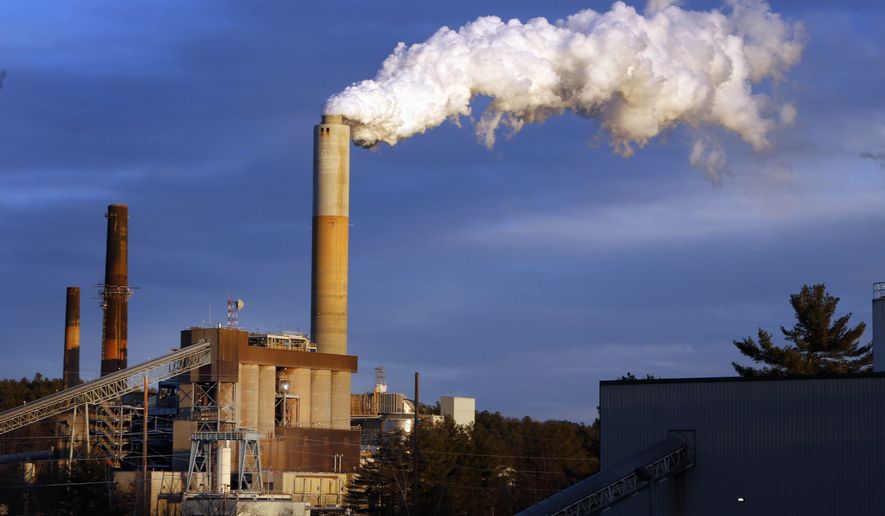Green groups blasted President Trump for withdrawing from the Paris climate agreement Thursday, but predicted the U.S. economy and much of the rest of the world are already locked into a lower-emission model, even without the U.S. government’s involvement.
That optimism seemed to temper some of the more dire warnings about Mr. Trump’s decision to withdraw.
Elon Musk, a high-profile tech entrepreneur, announced he was quitting several of Mr. Trump’s presidential councils in retaliation for the decision, saying on Twitter that leaving Paris “is not good for America or the world.”
But he also pointed to news that India has already committed to sell only electric cars by 2030, and is “already the largest market for solar power.”
In the U.S., the wind and solar industries are already creating jobs at 12 times the rate of the rest of the economy, according to a report earlier this year by the Environmental Defense Fund.
Overall, clean-powered vehicles account for 174,000 jobs, renewable energy another 769,000, and 2.2 million people are employed in advancing energy efficiency, the EDF said, crediting businesses, philanthropists and nonprofit foundations for the rapid growth.
The shift from coal to gas-fired power plants has also helped the U.S. cut greenhouse gas emissions, which peaked near the end of the Bush administration at above 7 million metric tons of carbon, and dropped to about 6.5 million metric tons by 2015.
Conservative-leaning analysts said none of that disappears, regardless of Mr. Trump’s decisions.
“Because of our private investments in technological innovation, America leads the world in reducing carbon dioxide emissions from power plants. We did that without Paris, and we will continue our exemplary leadership without it,” said Patrick J. Michaels, a climate expert at the Cato Institute.
Tech industry leaders were particularly torn, seeing both half-empty and half-full glasses on the table.
David Hart, a senior fellow at the Information Technology & Innovation Foundation, called withdrawal an “abdication of global leadership” and said he feared it would prompt other nations to squirrel out of their commitments.
“But leaving Paris doesn’t mean that all hope is lost,” he said. “If the Trump administration and Congress focus on innovation, the United States can still be a global leader — both in the fight against climate change and in the burgeoning market for clean energy.”
He said public-private partnerships and upgrading the U.S. energy grid are starting points.
Congressional Democrats fretted that the lack of government pressure would stunt the U.S., and said other countries may retaliate against Mr. Trump’s decision by shutting Americans out of their clean energy markets.
Yet Democratic governors vowed to keep their states pointed toward a green future, and Fred Krupp, president of the Environmental Defense Fund, said he expected a backlash to Mr. Trump’s decision, and said that backlash will solidify the green economy.
“As these women and men stand up for their children and adopt clean energy in their own lives, they will join the myriad cities, states, companies and nations around the world who are leading the way to a cleaner, healthier future even as the president tries to go backward,” he said.
Perhaps the biggest champion of the notion that the U.S. economy is locked into a clean energy boom is former President Barack Obama.
Despite lashing Mr. Trump on Thursday for joining “a small handful of nations that reject the future,” Mr. Obama insisted the gains he made during his tenure will continue regardless of his successor.
“Simply put, the private sector already chose a low-carbon future,” he said. “And for the nations that committed themselves to that future, the Paris Agreement opened the floodgates for businesses, scientists and engineers to unleash high-tech, low-carbon investment and innovation on an unprecedented scale.”
Michael McKenna, an energy strategist, said green groups have tried to have their argument both ways for months, saying that withdrawal from Paris would be a disaster of epic proportions while also predicting the continued pressure from companies and the public would spur low-emission developments no matter what Mr. Trump decided.
“They argue both, because they count on nobody asking any questions,” he said.
But Mr. McKenna said the environmentalists were wrong on both counts. He said Mr. Trump’s announcement isn’t a catastrophe, but he also disputed the health of low-emission economics, saying the drop in emissions over the last decade had more to do with a stagnant American economy.
“In places where you have no economic growth, carbon emissions have been going down,” he said, adding that’s not true in India and China, where growth is still heavily carbon-fueled.
• Stephen Dinan can be reached at sdinan@washingtontimes.com.
• Ben Wolfgang can be reached at bwolfgang@washingtontimes.com.




Please read our comment policy before commenting.